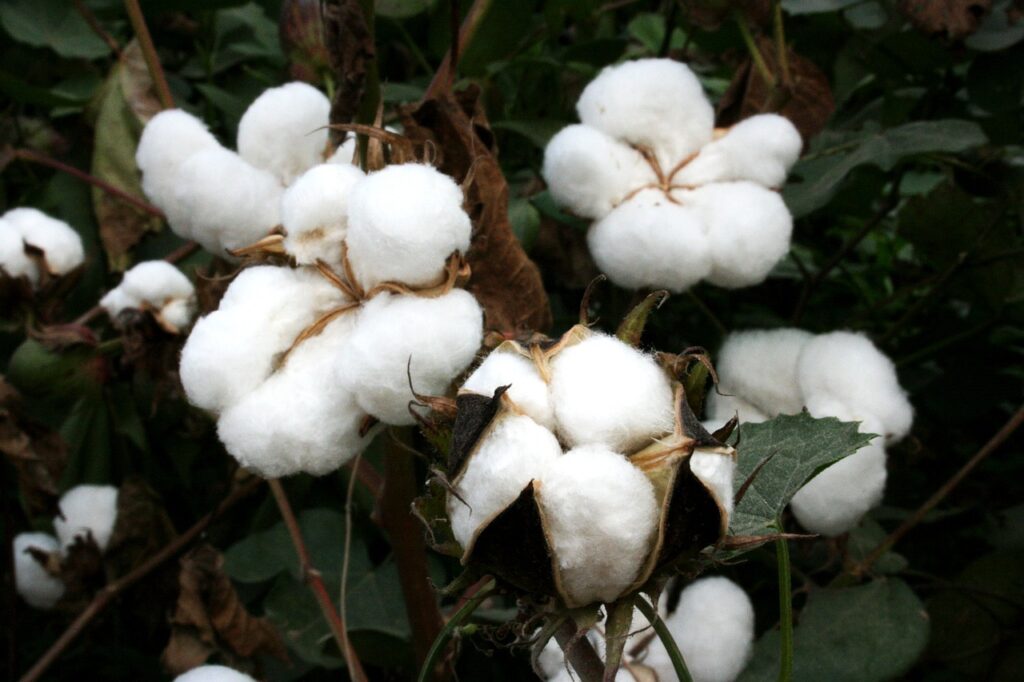Organic Cotton NOP and NPOP Certificate

Certified Organic Cotton NOP
NOP Organic Cotton Description.
(NOP) is an abbreviation of National Organic Program. Organic cotton that has been certified to be grown without the use of any prohibited substances. It is a federal regulatory program for enforcing consistent national standards for organic products related to agricultural items sold in the United States. The USDA and certifying authorities ensure proper adherence to procedures, maintaining end users’ confidence in the integrity of the USDA’s organic seal.
Organic Cotton NPOP Description
NPOP Organic Cotton Description
(NPOP) is an abbreviation of National Program for Organic Production. Certifying authorities verify organic cotton production without prohibited substances, ensuring compliance with U.S. regulations. Department of Agriculture’s National Organic Program regulations. It is managed by Agricultural and Processed Food Products Export Development Authority (APEDA). APEDA is helping the organic product sellers to promote their products under several schemes.
Farmers grow organic cotton without employing chemical pesticides, herbicides, or synthetic chemicals.
Benefits of Organic Cotton Certification: NOP and NPOP
Organic cotton certified under NOP (National Organic Program) in the US and NPOP (National Program for Organic Production) in India offers several benefits:
- Environmental Sustainability: These certifications ensure cultivation without synthetic pesticides or fertilizers, promoting soil health and biodiversity while reducing chemical exposure.
- Healthier Farming Practices: Farmers follow strict guidelines, minimizing exposure to harmful chemicals, promoting safer working conditions, and reducing health risks.
- Quality Assurance: Organic cotton undergoes stringent standards, ensuring high-quality fibers free from chemical residues, often resulting in softer and more hypoallergenic textiles.
- Consumer Confidence: Certifications provide consumers assurance of environmentally friendly and ethically produced textiles, aligning with sustainability concerns and ethical consumption.
- Support for Rural Communities: Embracing organic farming practices supports small-scale farmers by potentially increasing their income and fostering sustainable livelihoods in rural areas.
A Comprehensive Guide to NPOP and NOP Certified Organic Goods
The National Programme for Organic Production (NPOP) and the National Programme for Organic Production (NPOP) are initiatives by the Indian government to regulate and promote organic products. Under these programs, various agricultural products, processed foods, and other items can be certified as organic if they meet the specified standards. Some of the products that can be certified under NPOP and NOP include:
- Fruits and Vegetables: Apples, oranges, bananas, tomatoes, potatoes, etc.
- Cereals and Grains: Rice, wheat, barley, oats, quinoa, etc.
- Pulses and Legumes: Lentils, chickpeas, beans, peas, etc.
- Spices and Herbs: Turmeric, cumin, coriander, basil, etc.
- Dairy Products: Milk, cheese, yogurt, etc.
- Processed Foods: Jams, sauces, juices, canned goods, etc.
- Herbal Products: Herbal teas, supplements, cosmetics, etc.
The certification ensures that these products are grown and processed using organic farming practices without the use of synthetic fertilizers, pesticides, or genetically modified organisms (GMOs). This certification helps consumers identify and trust organic products in the market.
FAQ
- “Understanding the NPOP and NOP: Certified Organic Products in India”
- “A Comprehensive Guide to NPOP and NOP Certified Organic Goods”
- “Exploring the Range of NPOP and NOP Organic Products”
- “From Farm to Table: NPOP and NOP Certified Organic Offerings”
- “The Diversity of NPOP and NOP Organic Products: What’s Included?”
- “NPOP and NOP: Your Gateway to Trustworthy Organic Choices”
- “NPOP and NOP Standards: Certifying Organic Excellence in Products”
- “Discovering NPOP and NOP Certified Goods: What You Need to Know”
- “Embracing NPOP and NOP Organic Labels: Products and Benefits”
- “NPOP and NOP: Unveiling India’s Organic Product Spectrum”
These titles aim to capture the essence of the NPOP and NOP programs and the wide array of organic products they cover. You can choose one that best fits the tone and focus of your content.
